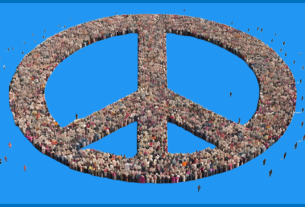Mexico’s Supreme Court ruled this week that Congress must eliminate federal criminal penalties for abortion, which means all federal health facilities should provide abortion care, a massive victory for human rights.
This ruling, which comes after leading national reproductive justice organization GIRE (Information Group on Reproductive Choice) filed a legal challenge, requires Congress to remove abortion from the federal criminal code before the end of 2023.
The ruling also confirms what we already know: The criminalization of abortion is against human rights.
In recent years, Mexico has taken massive steps towards decriminalizing abortion, with 12 out of 32 states doing so. In most of these states, the local congress voted to decriminalize abortion by changing local legislation. For two states, the change came through a Supreme Court ruling.
However, abortion, remained a federal crime, except in the cases of rape and life-threatening conditions to the pregnant woman or person. This meant that, even in the 12 states that decriminalized abortion, federal healthcare providers were not providing abortion services because they operated in accordance with the federal criminal code.
This legal contradiction between criminal codes has limited access to abortion services. Mexico’s federal health systems (IMSS, IMSS Bienestar, ISSSTE, ISSFAM, and PEMEX) serve two-thirds of Mexicans, including people who receive health care through their employers, public servants, and members of the army.
This unprecedented ruling marks enormous progress towards guaranteeing human rights in Mexico. It means abortion services should be available in all federal health facilities and that no women, person with gestational capacity, provider or anyone helping someone have an abortion can be criminalized in Mexico.
Barriers to abortion access still exist in practice, even in places where abortion has been decriminalized and where health institutions are obligated to provide abortion services. These barriers include little to no availability of abortion services outside the big cities, stereotypes and biases in medical care, and failure to enforce existing legislation and guidelines.
This ruling also indicates that progress on human rights is possible, and it reminds us of the importance of a strong civil society and independent judiciary. Congress should update the federal criminal code to comply with the ruling, and the federal government should take steps to strengthen health services to ensure access to abortion for all.



